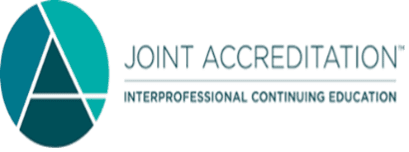
Overview
Join fellow health care professionals for an immersive dive into human trafficking that goes beyond the 101 of typical workshops. We’ll begin with a brief overview of these crimes and their health connections. You’ll then learn about the specific health impacts of trafficking, along with tools for identifying and assessing patients who may be affected.
In addition, you’ll study the provider’s role in response and referrals. You’ll apply your knowledge with peers through exploring case studies and brainstorming policies and procedures that could be used in your own setting.
Human Trafficking: A Social and Racial Justice Issue
Through a range of learning methods, you’ll gain deeper insight into the social and racial justice aspects of this issue. While human trafficking crimes trap people of all genders, cultures, races and backgrounds, they unduly affect people of color, LGBTQI youth and other marginalized groups.
During the workshop, you’ll hear inclusive language and learn methods and processes that will empower you to understand and take into account victims’ well-being. You’ll also gain skills in assessing people across different backgrounds, inclusive of all skin types and pigments.
Who Should Attend?
Doctors, nurses, nurse practitioners, social workers and health care administrators (reception, patient check-in and check-out), and other personnel who interact with patients. We also welcome community-based partners including nonprofit organizations, law enforcement personnel, colleges and universities, and anyone else who may benefit.
Program Details
Please view the following tabs for more details.
HASC also offers private Essential Human Trafficking Training workshops, customized to your organization’s preference and number of participants. For more information about setting up a custom workshop or for any questions, please contact the HASC Education Department.
Following this course, you’ll be able to:
- Recognize the red flags of human trafficking in a clinical or community setting.
- Know what to look for, what questions to ask and how to create a place of safety for trafficking victims and survivors.
- Understand how health care and community health professionals make decisions in human trafficking cases, and brainstorm ways to make decisions.
- Apply professional, ethical, sensitive and trauma-informed approaches when working with trafficked patients.
- Advocate for survivors by helping them get needed services and resources.
Workshop Agenda
(may be subject to change)
8:45 – 9 a.m. Check-in and refreshments
9 – 9:10 a.m. Welcome by Teri Hollingsworth, Vice President, Human Resources and Education Services, HASC
9:10 – 10:25 a.m. Introductions; Human Trafficking 101: An Overview 9:5
10:25 – 10:30 a.m. Break
10:30 a.m. – 12 p.m. Human Trafficking in Health Care, Part 1
12 – 12:05 p.m. Break
12:05 – 12:50 p.m. Human Trafficking in Health Care, Part 2
12:50 – 1 p.m.: Closing remarks and evaluation
Speakers
Samantha L. Calvin, PhD(c), MHI, MBA

An anti-trafficking advocate and leader in Arizona and the United States, Samantha has used education and training to debunk the myths around human trafficking. She is active in community-focused work and research to understand how the issue of human trafficking is evolving.
Over the past ten years with Arizona State University’s (ASU) Edson College of Nursing and Innovation, Samantha developed the Edson Human Trafficking Awareness Program, which she currently oversees. This program focuses on helping health care providers and community members to become more aware of what human trafficking looks like, ask better questions when working with potential victims and survivors, and know what resources to provide. Currently, Samantha is expanding this work to include a program for K-12 educators.
She has also served as a consultant for the U.S. Department of Justice. Samantha regularly speaks at ground rounds, conferences and panels throughout Arizona.
Tejal “TJ” Patel, Esq., CPHRM

A licensed attorney and insurance broker with over 20 years of experience, TJ specializes in crafting innovative solutions to complex health care risks and legal challenges in California, and advocating for those without voices, such as victims of human trafficking.
Over the past eight years, TJ has served as associate risk management counsel for Cedars-Sinai Health System in Los Angeles. In this role, she has led the development and implementation of multidisciplinary human trafficking trainings for clinical providers and hospital support staff. She continues overseeing the trainings and customizes each to include focused discussion about who traffickers target and how, red flags often displayed by those being trafficked, and appropriate trauma-informed care response by providers.
Beyond her health care role, TJ advocates for anti-trafficking initiatives through grassroots efforts and partnerships with pioneering organizations such as iEmpathize. She believes in the transformative power of education and the vital role of health care providers in addressing human trafficking.

- $176 HASC members
- $199 Non-members, law enforcement and community partners
Continuing education units offered:
- New! Hospital Association of Southern California is recognized by SHRM to offer Professional Development Credits (PDCs) for SHRM-CP® or SHRM-SCP® recertification activities. This program is valid for 3.50 PDCs for the SHRM-CP® or SHRM-SCP®
- AMA PRA Category 1 Credits: 3 CME credit hours
- Nursing Continuing Professional Development (NCPD) Credits: 3 credit hours
- Social Work Approved Continuing Education (ACE): 3 credit hours
- Interprofessional Continuing Education Credits (IPCE): 3 credit hours
- HRCI Credit: Participants may earn up to 4 HRCI Qualified Education Hours toward initial certification
- ACHE Credit: Participants may earn up to 4 ACHE Qualified Education Hours per session toward initial certification or recertification of the Fellow of the American College of Healthcare Executives (FACHE) designation

As a Jointly Accredited Organization, Arizona State University is approved to offer social work continuing education by the Association of Social Work Board’s (ASWB) Approved Continuing Education (ACE) program. Organizations, not individual courses, are approved under this program. State and provincial regulatory boards have the final authority to determine whether an individual course may be accepted for continuing education credit. Arizona State University maintains responsibility for this course. Social workers completing this course will receive 3 credit hours of continuing education credits.
IMPORTANT REMINDERS
- Registration deadline: Aug. 11, 2025.
- Valid payment information must be received with your registration.
- Make check payable to HASC and mail to: HASC, FILE 1361, Pasadena, CA 91199-1361.
- You may be photographed or videotaped at the event. HASC reserves the right to use these images and video in promotional, marketing, educational and other materials.
CANCELLATIONS
- Program cancellations received in writing by Aug. 11, 2025, will be subject to a $50 processing fee.
- We welcome substitutions.
- Refunds will not be granted after Aug. 11 or for no-shows. Fees are not transferable to other programs.
PARKING
Parking is $15 at this location (enter from Figueroa or Fremont. If you’d like to skip traffic and parking fees, we encourage you to take public transit — many Metro, LADOT and other train and bus lines stop within walking distance of the building.
SPECIAL NEEDS OR QUESTIONS
For ADA assistance or general registration questions, contact [email protected].
Sponsored by Arizona State University Edson College of Nursing and Innovation and HASC.
Registration
To register for Essential Human Trafficking Training, please use the green button above. You’ll have the option to pay online or by check.
If paying by check, make payable to HASC and mail to:
HASC
FILE 1361
Pasadena, CA 91199-1361
Brochure coming soon
Contacts
For any questions, please contact the HASC Education Department.
Sherita Aquino
[email protected]
(213) 538-0767
Sharri Dixon
[email protected]
(213) 538-0739